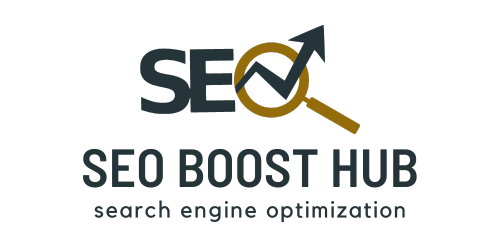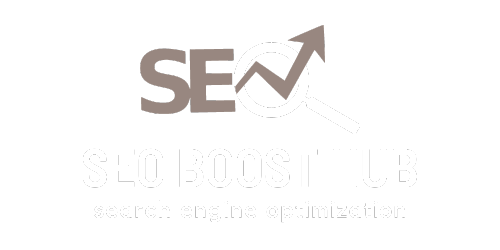Introduction to Google Search Planner
Google Search Planner, often referred to as Google Keyword Planner, is a vital tool for marketers and advertisers seeking to conduct effective keyword research for search engine optimization (SEO) and paid advertising campaigns. It provides valuable data on keyword search volumes, competition levels, and cost-per-click (CPC) estimates, helping users develop successful campaigns that target the right audience.
In this guide, we’ll explore the key features of Google Search Planner, how to use it for keyword research, and actionable tips for maximizing the effectiveness of your SEO and paid search campaigns.
What is Google Search Planner?
Google Search Planner is part of the Google Ads platform, specifically designed to aid marketers in identifying the best keywords for their digital marketing efforts. It offers insights into keyword performance, allowing businesses to tailor their ad campaigns and website content to attract the right audience.
The tool is particularly helpful for:
- Finding new keyword ideas based on seed keywords or product descriptions.
- Estimating search volume trends to forecast campaign success.
- Analyzing keyword competition and bid estimates for paid campaigns.
- Optimizing SEO strategies by discovering which keywords drive organic traffic.
Key Features of Google Search Planner
1. Discovering New Keyword Ideas
Google Search Planner helps generate new keyword ideas by analyzing a product, service, or website URL. These keyword suggestions are designed to align with what your target audience is searching for on Google.
- Tip: Use both general and niche-specific keywords to broaden your reach while ensuring relevance.
2. Analyzing Search Volume Trends
The tool provides historical search data, including the monthly search volume of specific keywords. This helps marketers identify seasonal trends and plan their campaigns accordingly.
- Tip: Use high-search-volume keywords during peak business seasons and adjust your content to meet audience demand.
3. Evaluating Keyword Competition
Google Search Planner offers insights into how competitive a keyword is in the paid search landscape. You can see whether a keyword has low, medium, or high competition and plan your bidding strategy accordingly.
- Tip: Target low-to-medium competition keywords with high relevance to your product or service for better ROI.
4. Cost-Per-Click (CPC) Estimates
By offering CPC estimates for each keyword, the tool helps businesses budget their paid campaigns effectively. Knowing how much a click might cost can aid in setting bid limits and determining overall campaign cost.
- Tip: Prioritize high-value keywords that fit within your budget but have the potential to generate substantial leads.
5. Keyword Forecasting
Google Search Planner allows you to create keyword forecasts based on projected clicks, impressions, and conversions. This feature helps you estimate how well certain keywords may perform in a live campaign.
- Tip: Use forecasts to set realistic campaign goals and adjust bids or budget allocations to optimize ad performance.
How to Use Google Search Planner for Effective Keyword Research
Step 1: Access the Tool
Google Search Planner is available within the Google Ads platform. To access it, log in to your Google Ads account, click on “Tools & Settings,” and navigate to “Keyword Planner.”
Step 2: Enter Seed Keywords
Start by entering a list of seed keywords, your website URL, or a product description. Google Search Planner will then generate a list of related keyword ideas based on this input.
Step 3: Review Metrics
For each keyword, the tool will provide important metrics like search volume, competition level, and CPC estimates. Use this data to filter and prioritize keywords that are relevant and within your budget.
Step 4: Group Keywords
Group your selected keywords into different categories based on campaign objectives. This allows for more targeted ads and helps create focused ad groups that align with specific user intent.
Step 5: Set Bid and Budget
Using the CPC estimates provided by Google Search Planner, allocate your ad spend to each keyword group. Adjust your bids based on the keywords that show the most potential for conversions.
Step 6: Monitor and Optimize
Once your campaign is live, regularly check keyword performance and adjust your strategy. Keep an eye on changing search trends and update your keywords accordingly to stay competitive.
Benefits of Using Google Search Planner
1. Improved Keyword Targeting
By using Google Search Planner, you can pinpoint the keywords most likely to attract your ideal audience, whether for SEO or paid search campaigns. This precise targeting helps increase traffic and boost conversions.
2. Better ROI on Ad Spend
With accurate CPC estimates and keyword competition data, you can make informed decisions on how to allocate your budget, leading to a higher return on investment for your advertising spend.
3. Optimized SEO Strategy
For businesses focusing on organic search, Google Search Planner provides a way to optimize website content for search engines. By selecting the right keywords, you can improve search engine rankings and attract more organic traffic.
4. Competitive Analysis
The tool’s competition metrics allow you to see where your competitors stand and identify potential opportunities to outbid or outperform them in search rankings.
Best Practices for Using Google Search Planner
1. Focus on Long-Tail Keywords
Long-tail keywords are often less competitive and more specific, making them a valuable asset in both SEO and paid search campaigns. Google Search Planner helps identify these long-tail opportunities that drive highly targeted traffic.
2. Incorporate Negative Keywords
Negative keywords allow you to filter out irrelevant search queries that might be costing you clicks but not conversions. This helps ensure that your ads are only shown to people who are most likely to be interested in your products or services.
3. Use Location-Specific Keywords
If your business operates in specific regions, use Google Search Planner to find location-specific keywords. This will help you tailor your campaigns to target users in your service area.












